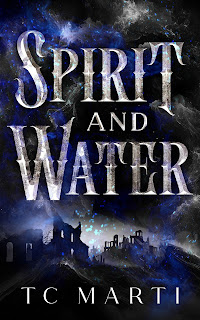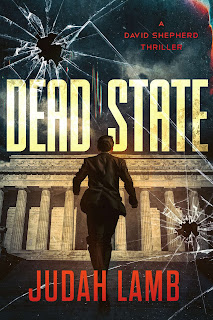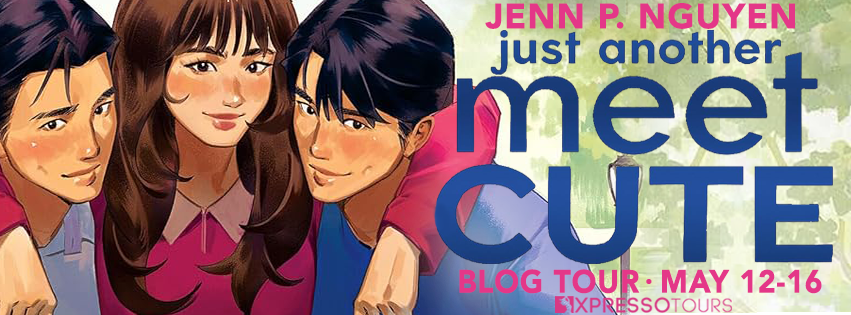The Golden Manuscripts is inspired by the real-life theft of medieval manuscript illuminations during World War II.
Title: The Golden Manuscripts: A Novel
Author: Evy Journey
Pages: 360
Genre: Historical Fiction/Women's Fiction/Mystery

Book Excerpt:
November 2000
Rare Manuscripts
I sometimes wish I was your girl next door. The pretty one who listens to you and sympathizes. Doesn’t ask questions you can’t or don’t want to answer. Comes when you need to talk.
She’s sweet, gracious, respectful, and sincere. An open book. Everybody’s ideal American girl.
At other times, I wish I was the beautiful girl with creamy skin, come-hither eyes, and curvy lines every guy drools over. The one you can’t have, unless you’re a hunk of an athlete, or the most popular hunk around. Or you have a hunk of money.
But I’m afraid the image I project is that of a brain with meager social skills. The one you believe can outsmart you in so many ways that you keep out of her way—you know the type. Or at least you think you do. Just as you think you know the other two.
I want to believe I’m smart, though I know I can be dumb. I’m not an expert on anything. So, please wait to pass judgement until you get to know us better—all three of us.
Who am I then?
I’m not quite sure yet. I’m the one who’s still searching for where she belongs.
I’m not a typical American girl. Dad is Asian and Mom is white. I was born into two different cultures, neither of which dug their roots into me. But you’ll see my heritage imprinted all over me—on beige skin with an olive undertone; big grey eyes, double-lidded but not deep-set; a small nose with a pronounced narrow bridge; thick, dark straight hair like Dad’s that glints with bronze under the sun, courtesy of Mom’s genes.
I have a family: Mom, Dad, Brother. Sadly, we’re no longer one unit. Mom and Dad are about ten thousand miles apart. And my brother and I are somewhere in between.
I have no one I call friend. Except myself, of course. That part of me who perceives my actions for what they are. My inner voice. My constant companion and occasional nemesis. Moving often and developing friendships lasting three years at most, I’ve learned to turn inward.
And then there’s Arthur, my beautiful brother. Though we were raised apart, we’ve become close. Like me, he was born in the US. But he grew up in my father’s home city where his friends call him Tisoy, a diminutive for Mestizo that sometimes hints at admiration, sometimes at mockery. Locals use the label for anyone with an obvious mix of Asian and Caucasian features. We share a few features, but he’s inherited a little more from Mom. Arthur has brown wavy hair and green eyes that invite remarks from new acquaintances.
Little Arthur, not so little anymore. Taller than me now, in fact, by two inches. We’ve always gotten along quite well. Except the few times we were together when we were children and he’d keep trailing me, like a puppy, mimicking what I did until I got annoyed. I’d scowl at him, run away so fast he couldn’t catch up. Then I’d close my bedroom door on him. Sometimes I wondered if he annoyed me on purpose so that later he could hug me and say, “I love you” to soften me up. It always worked.
I love Arthur not only because we have some genes in common. He has genuinely lovable qualities—and I’m sure people can’t always say that of their siblings. He’s caring and loyal, and I trust him to be there through thick and thin. I also believe he’s better put together than I am, he whom my parents were too busy to raise.
I am certain of only one thing about myself: I occupy time and space like everyone. My tiny space no one else can claim on this planet, in this new century. But I still do not have a place where I would choose to spend and end my days. I’m a citizen of a country, though. The country where I was born. And yet I can’t call that country home. I don’t know it much. But worse than that, I do not have much of a history there.
Before today, I trudged around the globe for two decades. Cursed and blessed by having been born to a father who was a career diplomat sent on assignments to different countries, I’ve lived in different cities since I was born, usually for three to four years at a time.
Those years of inhabiting different cities in Europe and Asia whizzed by. You could say I hardly noticed them because it was the way of life I was born into. But each of those cities must have left some lasting mark on me that goes into the sum of who I am. And yet, I’m still struggling to form a clear idea of the person that is Me. This Me can’t be whole until I single out a place to call home.
Everyone has a home they’ve set roots in. We may not be aware of it, but a significant part of who we think we are—who others think we are—depends on where we’ve lived. The place we call home. A place I don’t have. Not yet. But I will.
I was three when I left this city. Having recently come back as an adult, I can’t tell whether, or for how long, I’m going to stay. You may wonder why, having lived in different places, I would choose to seek a home in this city—this country as alien to me as any other town or city I’ve passed through.
By the end of my last school year at the Sorbonne, I was convinced that if I were to find a home, my birthplace might be my best choice. I was born here. In a country where I can claim citizenship. Where the primary language is English. My choice avoids language problems and pesky legal residency issues. Practical and logical reasons, I think.
Interview with Evy Journey
How did you even find out about these medieval manuscript illuminations that were stolen? During research? Why were they even stolen?
I learned about manuscript illumination in an art history class, and it fascinated me because it lies at the intersection of my interests in both visual arts and the written word. To me, the genre is the medieval precursor of picture books and comic strips—stories told in part through images. And yes, I learned about the manuscripts stolen in WWII while doing some fairly extensive research on the topic. It was almost a eureka moment that gave me an impetus, an angle, and the way to begin weaving a story.
Looting art treasures by invaders during wartime is a well-documented fact. It was part of Hitler’s agenda. His looted treasures were supposed to fill an unrealized museum that would have served as a paean to him. What’s not as well-known is that individual Allied soldiers were tempted as well, just as the soldier was in my novel. In the chaos of war, many treasures became easy pickings. Soldiers took things they considered spoils of war—those left by dead or fleeing enemies and civilian victims.
So this story is based on the actual theft by an American soldier of illuminated manuscripts during World War II. What’s his story?
Little is publicly known about the real-life soldier who stole the manuscripts, plus a few other treasures. He was an art major (like the novel’s art thief) so he might have valued these manuscripts more than someone not into art. He didn’t survive as long as the fictitious art thief in the novel, dying of some disease in his early sixties before his theft became known. That is, before these manuscripts resurfaced for sale.
He was reputed to be solitary and maybe secretive because of his sexual preference. He also grew orchids. I can’t tell from the little that’s available in the media why he stole and why he kept these rare treasures all his life. The motivation I attributed to him in the novel comes from my opinions of what may attract people to art.
Can you tell us a little about the main character, Clarissa?
True to the themes of the second set of the standalone novels in my series, Between Two Worlds, Clarissa is of mixed parentage, an exotic beauty who’s unaware of it. She has lived in seven different countries by her young adulthood, and her fitting-in problems may be worse than most. She’s also naïve and awkward, but it helps that she’s curious, inquisitive, smart and, in some ways, worldly because of her exposure to many cultures.
And who is Nathan?
Clarissa and her brother met Nathan at a café in Paris. An only son thrust into medicine by parents who’re both doctors, he discovers a passion for art. But he doesn’t make art, he writes about them. He supports himself by working part-time as a doctor and eventually unites his interests in the new field of neuroaesthetics.
So what part in the book would have us on pins and needles?
This novel is mostly in the literary genre with strong mystery, historical, and romantic elements thrown in. As such, it assumes that, realistically, searching for truth is painstaking work. There aren’t scenes like thrilling car chases or running from someone intent on killing the protagonist. But there are several instances just before some facts are uncovered, when Clarissa gets an adrenaline rush. Finding out who the actual owners of the stolen manuscripts are, for instance. Or learning who the art thief is. Or realizing she’s in love.
What was the most difficult part about writing this book?
I amassed a lot of material for this novel. I read books and journal articles, watched movies and documentaries. So, the most difficult part was deciding what to include in the story and what to leave out.
Why do you think people ought to read your book?
The underlying theme of the novel is a rootless young woman’s self-discovery and growth, and how she discovers that a home is not so much a place as an enduring sense of who she is. It’s a universal conundrum that would interest readers on the same journey.
The book should also interest readers curious and/or enthusiastic about art and the machinations of an art world not immune to fraud, deception, and even violence . Finally, this story is dedicated to everyone fascinated by all forms of picture books, and how they originated from illuminated manuscripts as far back as the middle ages.
Evy Journey writes. Stories and blog posts. Novels that tend to cross genres. She’s also a wannabe artist, and a flâneuse. Evy studied psychology (M.A., University of Hawaii; Ph.D. University of Illinois). So her fiction spins tales about nuanced characters dealing with contemporary life issues and problems. She believes in love and its many faces. Her one ungranted wish: To live in Paris where art is everywhere and people have honed aimless roaming to an art form. She has visited and stayed a few months at a time.
Author Links
Website | Facebook | Instagram | Goodreads
Evy Journey will giving away nine $25 Amazon Gift Cards & nine boxed sets of the last 3 books in the series, Between Two Worlds! This is the way it works. Evy is touring for 6 months. At the end of each 2 month period she will be giving away 3 $25 Amazon Gift Cards and 3 boxed sets of the last 3 books in the series, Between Two Worlds. You will have a chance to win 3 times during her tour!
Terms & Conditions:
- By entering the giveaway, you are confirming you are at least 18 years old.
- Nine winners will be chosen via Rafflecopter to receive a $25 Amazon Gift Card and a boxed set of the last 3 books in the series, Between Two Worlds.
- This giveaway starts February 5 and ends July 30.
- Winners will be contacted via email on March 28, May 31 and July 30.
- Winner has 48 hours to reply.
Good luck everyone!

































































.jpg)











3 comments:
This does sound really intriguing. I enjoyed the post.
need the gift card for some supplies
I enjoyed the excerpt.
Post a Comment